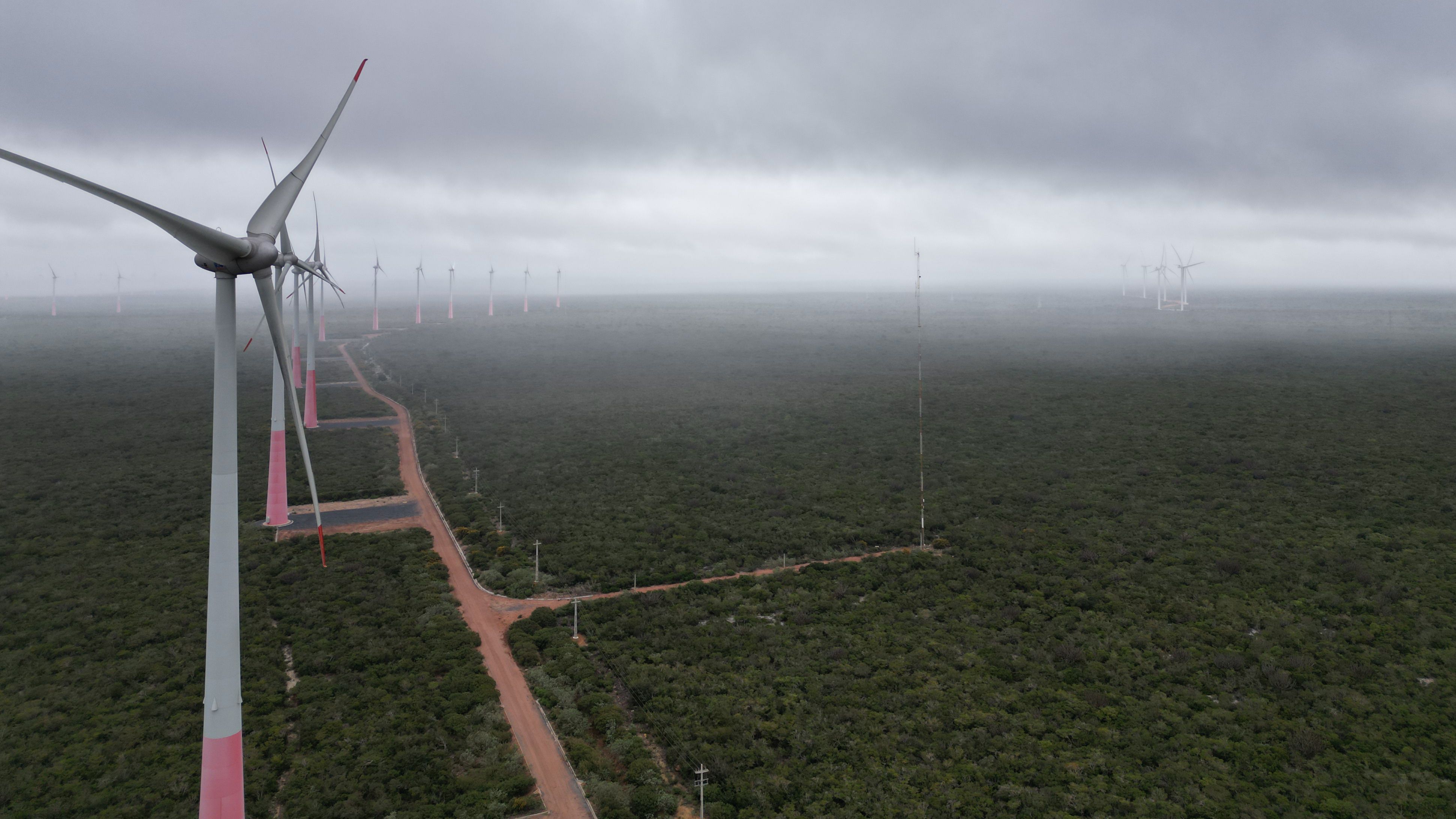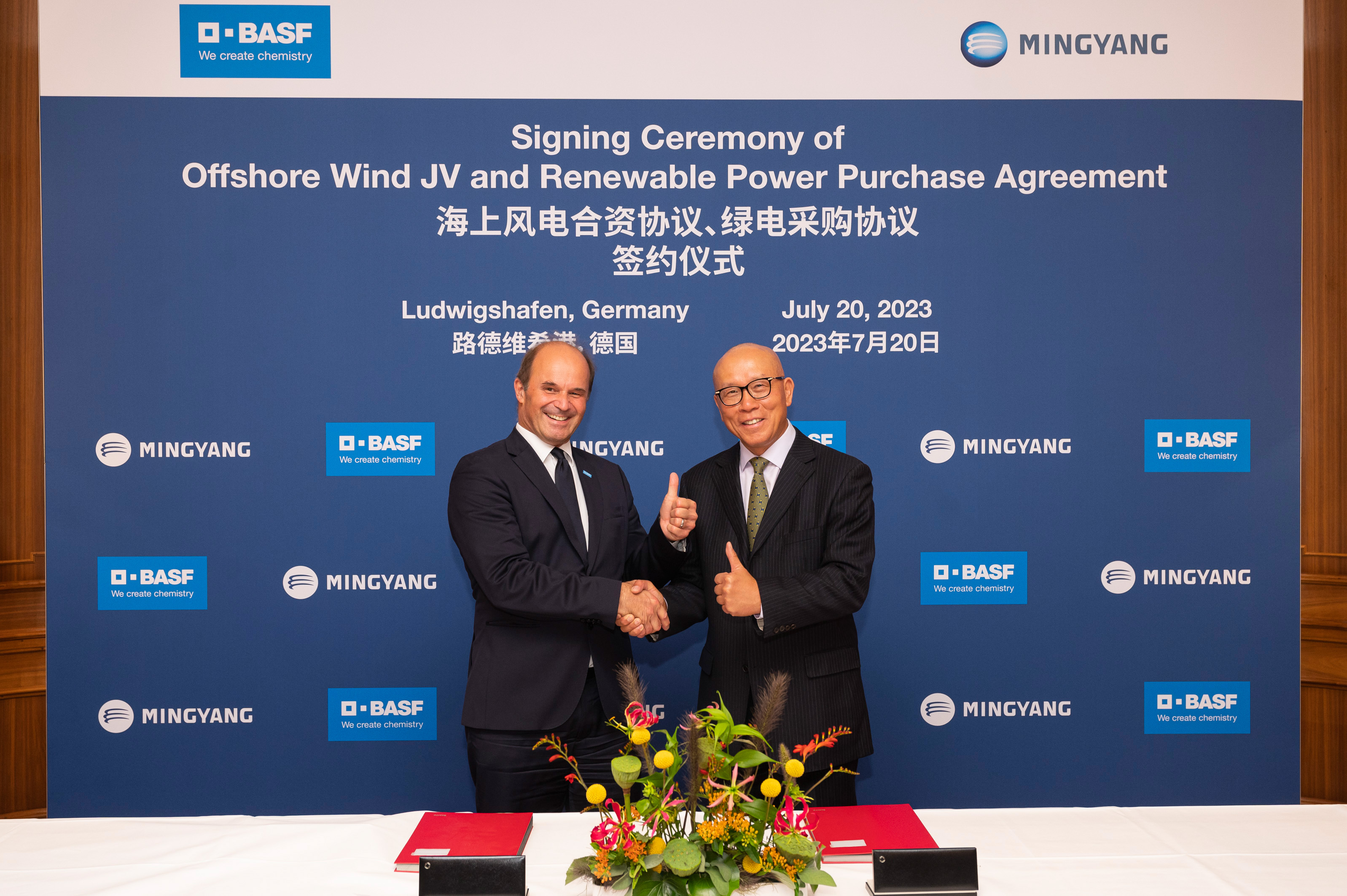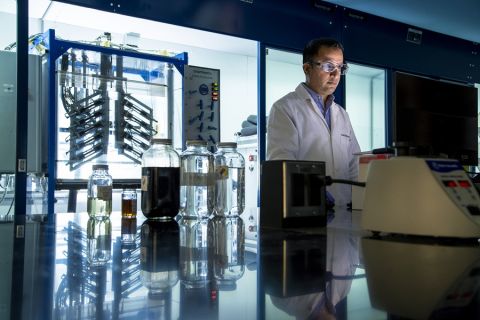Equinor is growing its renewable energy portfolio in Brazil, announcing July 21 its agreement to acquire Denham Capital-backed Rio Energy.
The transaction, which includes a carve-out of certain assets by Denham, comes as the energy company continues an acquisitions drive aimed at bolstering its renewables position in select markets across the world.
The value of the deal, which is subject to regulatory approvals, was not disclosed. But Equinor tells Hart Energy it believes the deal, expected to close in fourth-quarter 2023, will be “value creating” for both parties.
“Having Rio Energy onboard will strengthen Equinor’s ability to further develop the portfolio and reinforce our position as a broad energy company in Brazil,” Veronica Coelho, country manager for Equinor in Brazil, said in a news release. “By building an attractive renewables position in the country, together with a robust oil and gas portfolio, we are supporting Brazil's ambitions towards a diverse energy mix.”
With the acquisition, Equinor gains a pipeline of about 1.2 gigawatts (GW) of onshore wind and solar projects. The portfolio also includes the operating 200-megawatt (MW) Serra da Babilonia 1 onshore wind farm in the northeastern state of Bahia and 600 MW of photovoltaic solar power in the pre-construction phase.
Equinor, which plans to retain Rio Energy’s current management team and employees, said it expects the portfolio to deliver at the high end of the 4% to 8% real base project return for renewables projects, including acquisition price. Rio will operate as a subsidiary of Equinor.
The Norwegian energy player has operated in Brazil for more than two decades, mainly producing oil and gas. Its renewables assets include the 162-MW Apodi solar complex in Ceará and Mendubim, a 531-MW solar project being developed as a joint venture (JV) with Scatec and Hydro Rein in Rio Grande do Norte.
Calling the Brazilian power market the largest in South America, Equinor spokesperson Sissel Rinde said the company anticipates demand growth.
“Higher prices in the deregulated market can improve project returns for companies that can manage market risks. Brazil is a mature market for onshore renewables, with almost 50 GW of installed capacity, growing demand and accessible grid connections,” Rinde told Hart. “Building a power portfolio managed by Equinor’s wholly-owned energy trading house Danske Commodities can enable value uplift in line with our market driven power producer strategy.”

The latest acquisition is one of several renewable energy moves made by Equinor in recent years. In 2021, the company acquired Polish renewables company Wento and its 1.6-GW solar portfolio, as well as acquired a 45% ownership share in Noriker Power, a U.K. battery storage company. Last year, Equinor bought a 100% stake in East Point Energy, a U.S.-based battery storage developer. Earlier this year, Equinor closed its acquisition of Denmark-based solar developer BeGreen.
Here is a look at other renewable energy news this week.
Energy Storage
Tata Plans to Build $5.1B EV Battery Factory in UK
India-headquartered Tata Sons plans to build a $5.1 billion electric vehicle battery gigafactory in the U.K. with Jaguar Land Rover and Tata Motors as anchor customers, the company said July 19.
The gigafactory will have the capacity to produce 40 GW of battery cells annually, making it one of the largest facilities in the region and Tata’s first outside of India.
“Our multibillion-pound investment will bring state-of-the-art technology to the country, helping to power the automotive sector’s transition to electric mobility, anchored by our own business, Jaguar Land Rover,” said Tata Sons Chairman Natarajan Chandrasekaran. “With this strategic investment, the Tata group further strengthens its commitment to the U.K., alongside our many companies operating here across technology, consumer, hospitality, steel, chemicals and automotive.
Production is expected to start in 2026. In addition to producing batteries, batteries will be recycled at the plant to enable the reuse of raw materials.
Energy Dome Financing Round Grows to $60MM
Italian startup Energy Dome plans to enter full commercial-scaling mode for its long-duration energy storage technology after securing $60 million in financing, the company said July 20.
The company’s technology stores energy as CO2 as a liquid under pressure. Using a closed thermodynamic process, the CO2 warms up, evaporates and expands to turn a turbine and generate electricity when needed, the company explained on its website.
“Our technology can play a key role in enabling humanity to address the urgency of climate change without waiting until 2030,” Energy Dome CEO Claudio Spadacini said in a news release.
Investors in Energy Dome’s second tranche of Series B funding included Oman Investment Authority’s investment arm Innovation Development Oman Investments, Royal Vopak’s corporate venture capital arm Vopak Ventures and investors represented by investing advisory firm Sagana, according to a news release. The first tranche of the funding brought in $40 million in April.
The funding enables the company to “enter full commercial scaling mode on a global basis” and build out a project pipeline of more than 9 gigawatt-hours for utilities, independent power producers and corporations, the company said in the release. “The capital will also be used to complete Energy Dome’s 20 MW, 200 megawatt-hour CO2 battery project under development that the company is planning to have operational by the end of 2024.”
Energy Dome also said it agreed with Oman Investment Authority to explore potential areas of collaboration in the Sultanate of Oman.
Australia Blocks Acquisition of Lithium Mine by China-linked Firm
Australia barred the takeover of financially-stricken lithium miner Alita Resources Ltd. by a China-linked company following advice from its Foreign Investment Review Board, a spokesperson for Treasurer Jim Chalmers said July 21.
Australia supplies around half of the world's lithium, as well as other minerals including rare earths used in batteries for electric cars and defense. It is seeking to boost trade with the U.S. and its allies amid a global push to diversify supply chains away from dominant producer China.
It is the second decision by the board to block a Chinese investment in critical minerals this year.
Chalmers issued a prohibition order stopping Austroid Corp. from acquiring an additional 90.10% of Alita Resources, which would bring its stake to 100%.
Austroid Australia, the local subsidiary of the U.S. based Austroid, is also barred from a proposal to wholly acquire Alita, a prohibition notice shows.
The director of Austroid Australia is a Chinese national with experience in the Chinese mining industry, company filings show.
Hydrogen
Fortescue Acquires Nikola’s Hydrogen Hub Project in Arizona
Nikola Corp. said July 19 that Fortescue Future Industries (FFI) will acquire Nikola’s Phoenix Hydrogen Hub project in Buckeye, Arizona.
As part of the agreement, FFI will provide the capital and resources required to develop the green hydrogen project to be built in phases. The project is currently in the final stages of permitting with procurement of long-lead equipment underway, Nikola said in a news release.
“This is an exciting opportunity to work towards a fast-moving project that will lead the way in the U.S., creating new green industrial jobs for Americans while also helping to reduce emissions once production begins,” FFI CEO Mark Hutchinson said.
The two companies are working on a hydrogen supply agreement for Nikola’s Class 8 zero-emission trucks, the release stated.
“Nikola’s priority is to see more zero-emission trucks on the road, and this acquisition by FFI will greatly strengthen one of the country’s first and most important hydrogen hubs,” said Nikola Corp. President and CEO Michael Lohscheller in a news release. “FFI’s acquisition of this project is a significant milestone as we work to create an all-important local connective infrastructure to accelerate the use of hydrogen to fuel zero-emission vehicles.”
EverWind to Invest $1B in Renewable Energy to Power Nova Scotia Project
EverWind Fuels said on July 17 it would invest $1 billion in renewable energy generation to power its green hydrogen and ammonia production project in Nova Scotia.
The company said it had purchased three wind farm development projects in the Canadian province with total capacity of about 530 MW to power Phase 1 of its venture.
Earlier this year, provincial authorities in Canada granted environmental approval to EverWind to convert a former oil storage facility and marine terminal at Point Tupper in Nova Scotia into a green hydrogen and ammonia production facility.
The Phase 1 of the project, starting in 2025, is expected to produce 200,000 tonnes of green ammonia annually, which would increase to 1 million tonnes by 2026 in Phase 2.
“This investment helps Nova Scotia move more quickly and cost-effectively towards its clean energy transition,” CEO Trent Vichie said.
Nova Scotia committed to getting off coal and generating 80% of its electricity from renewables by 2030.
“The power generated at these three new developments will also ensure EverWind's green hydrogen and ammonia will meet the strictest international standards,” Vichie added.
Exploits Valley Among Companies Vying to Develop Hydrogen in Newfoundland
Exploits Valley Renewable Energy Corp. said July 18 it is one of nine companies that have advanced to the second stage of bidding for a chance to develop wind-to-hydrogen projects on Crown land in Newfoundland & Labrador.
Earlier this month, the Ministry of Industry, Energy and Technology of Newfoundland & Labrador, which is granting development rights, said it had received 24 bids from 19 companies during the first stage. Of those, nine bids from nine companies were approved to proceed to the second stage. The names of the companies were not released.
Canada aims to have 30% of its end-use energy sourced from clean hydrogen by 2050.
The first stage assessed the bidder’s experience and financial capacity to plan, construct and operate the proposed project.
The second stage will take a deeper dive into the bidder’s experience, proposed project and financing plan, along with examination of more information on electricity grid connection requirements, community and Indigenous engagement, as well as benefits to the province, according to the ministry. Stage 2 expected to be complete by the end of August.
“We continue to be optimistic about the future of wind-hydrogen development in our province,” Minister of Industry, Energy and Technology Andrew Parsons said.
RNG/Biofuels
EverGen Announces First Injection of RNG at GrowTEC Facility
EverGen Infrastructure Corp. announced on July 18 its first injection of Renewable Natural Gas (RNG) at the company’s GrowTEC facility in Canada in late June, marking the completion of Phase 1 of the facility’s RNG expansion.
The GrowTEC facility is located in Alberta and is a bioenergy venture generating renewable power by converting biodegradable waste into biogas for more than eight years.
Phase 1 of the GrowTEC RNG expansion project allows the facility to have a production capacity of 80,000 gigajoules of RNG every year. The first phase was completed upon first injection of RNG at the facility, which followed a successful utility grid connection upon completion of gas quality sampling. Since, the facility has produced 180 gigajoules of RNG per day.
Phase 2 of the RNG expansion project will begin by adding preprocessing and depackaging equipment to process more organic waste. At the end of Phase 2, production capacity will increase to approximately 140,000 gigajoules of RNG annually. FID for the second phase is expected late 2023.
“RNG plays a crucial role in the global energy transition as the only carbon negative energy source, and we are excited to take this significant step towards achieving a decarbonized energy future,” Chase Edgelow, CEO of EverGen, said in a press release.
EverGen acquired a 67% interest in GrowTEC in July of 2022. The company is an independent renewable energy producer with a portfolio of RNG it has acquired, developed and operates.
RELATED:
Analysts Forecast Surge in RNG Production
Anaergia to Provide Renewable Power System for Water Purification Facility
Solar
Altus Power Acquires 4.4 MW Solar Portfolio from Apollo
Connecticut-based Altus Power said July 19 it has grown its solar portfolio by acquiring 4.4 megawatts (MW) of operating solar assets in Southern California.
Financial terms were not disclosed.
The assets, acquired from funds managed by Apollo, include rooftop, carport and ground-mounted solar arrays. The acquisition builds on the 112 MW the company currently owns and operates in California.
Long-term contracts for power generated by the assets have already been sealed with HP Inc., Keysight Technologies and a local municipality, Altus said in a news release.
“In addition, Altus Power continues to look for opportunities to add new customers in California, and we appreciate the support of the Apollo team in the acquisition of these projects,” Altus Power Co-CEO Gregg Felton said.
The acquisition came about seven months after Altus, one of the largest providers of distributed and community solar in the U.S., entered a definitive agreement to acquire about 220 MW of solar assets from funds managed by True Green Capital Management LLC.
The company’s portfolio spans about 25 states with its largest operations located in New York.
RELATED:
Energix to Power 7-GW Portfolio with First Solar’s PV Modules
EDP Renewables Subsidiary, Lufthansa Technik Puerto Rico Sign 21-year PPA
Wind
BASF, Mingyang Partner to Develop Offshore Wind Farm
Germany-headquartered BASF has teamed up with China’s Mingyang to jointly develop a 500-MW wind farm offshore South China, the chemical company said July 21.
Wind developer Mingyang will hold a 90% stake in the JV, called Mingyang BASF New Energy (Zhanjiang) Co. Ltd., while BASF will hold the rest.
“BASF wants to achieve net zero carbon emissions by 2050 globally. This offshore wind farm in Zhanjiang clearly demonstrates BASF’s commitment to achieving its climate goals and is a lighthouse project on BASF’s pathway to net zero,” said Martin Brudermüller, chairman of BASF’s board of executive directors. “Furthermore, the project will contribute to China’s green transformation in the chemical industry and to the country’s carbon reduction ambition.”
If regulatory approvals are secured, the wind farm could begin full operations in 2025. Most of the electricity generated will power BASF’s $12.9 billion Zhanjiang Verbund site, the company said, which aims to completely run the site on renewable energy.

RELATED: US Schedules GoM Wind Lease Auction for August
Hart Energy Staff and Reuters contributed to this report.
Recommended Reading
Defeating the ‘Four Horsemen’ of Flow Assurance
2024-04-18 - Service companies combine processes and techniques to mitigate the impact of paraffin, asphaltenes, hydrates and scale on production—and keep the cash flowing.
Tech Trends: AI Increasing Data Center Demand for Energy
2024-04-16 - In this month’s Tech Trends, new technologies equipped with artificial intelligence take the forefront, as they assist with safety and seismic fault detection. Also, independent contractor Stena Drilling begins upgrades for their Evolution drillship.
AVEVA: Immersive Tech, Augmented Reality and What’s New in the Cloud
2024-04-15 - Rob McGreevy, AVEVA’s chief product officer, talks about technology advancements that give employees on the job training without any of the risks.
Lift-off: How AI is Boosting Field and Employee Productivity
2024-04-12 - From data extraction to well optimization, the oil and gas industry embraces AI.
AI Poised to Break Out of its Oilfield Niche
2024-04-11 - At the AI in Oil & Gas Conference in Houston, experts talked up the benefits artificial intelligence can provide to the downstream, midstream and upstream sectors, while assuring the audience humans will still run the show.






